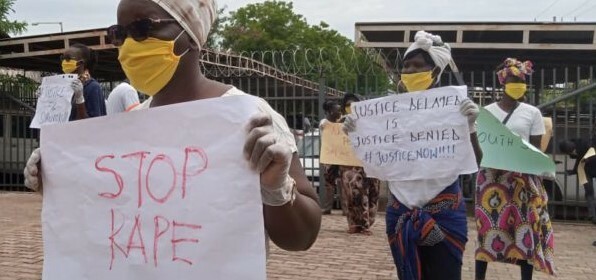Authorities in South Sudan’s Northern Bahr el Ghazal State have expressed concern over the alarming increase in Gender-Based Violence (GBV) cases.
A total of 54 incidents were reported in June alone, indicating a disturbing trend of home and gender-based abuses within the state.
During a monthly rule of law forum held last week, it was revealed that the victims included 21 women, 18 men, 12 girls, and three young boys, who were subjected to various forms of GBV across different locations within the state.
Police officer 2nd Lt. Achen Mathok, who serves at the police Special Protection Unit (SPU) in Aweil, Northern Bahr el Ghazal State, emphasized the need for prompt action in addressing these social issues.
She highlighted that the police station handles cases of both men and women facing mistreatment, encouraging individuals to seek assistance regardless of the time. “If someone has a problem with another person, they can approach us at any hour, as we receive cases from all genders,” she stated.
Peter Diing Ngong, the Executive Director of Wider Aid and Development Agency in South Sudan (WADA-SS), attributed the rise in GBV cases to the current economic crisis. He identified escalating local food prices as a key factor leading to disputes within families.
Ngong shared, “During our recent rule of law forum in Northern Bahr el Ghazal State, the members updated us on the increasing number of GBV cases. One of the contributing factors is the skyrocketing prices of essential commodities, which often triggers conflicts among parents and children in many households.”
Joseph Madut Mou, the Director of the gender department at the Ministry of Gender, Child and Social Welfare, stressed the importance of comprehensive awareness campaigns to address this concerning issue. He called for media engagement to educate and inform the public, urging radio talk shows and group discussions to be conducted from village to village.
“To decrease the cases of GBV, people should focus on the rule of law. There should be no compromise and our development partners should join the state ministry to tackle this problem of violence in families especially involving husbands, wives and children,” Mou explained.




